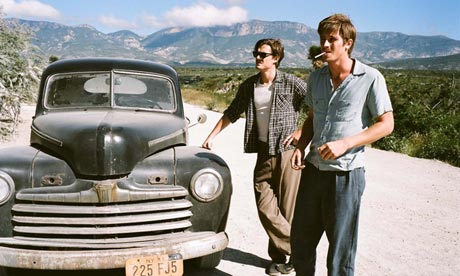In 1917, H.L. Mencken published an essay about what he saw
as the abject, cultural wasteland of the American South, titled “The Sahara of
the Bozart-” Bozart being a low-brow play on the term ‘beaux-arts.’ You can
read the whole thing here. Now, there are a whole host of things one could say
about his wacky racial theories (Anglo-Saxon blood is apparently best, Celtic
blood the worst, with Blacks and Frenchmen somewhere in the middle), but I’ll
just pick out a few choice lines from the essay to give you the gist of his
argument:
“Down there a poet is now almost as rare as an oboe-player, a dry-point etcher or a metaphysician. It is, indeed, amazing to contemplate so vast a vacuity.”
“There are single acres in Europe that house more first-rate men than all the states south of the Potomac;”
“Once you have counted James Branch Cabell (a lingering survivor of the ancient regime: a scarlet dragon-fly imbedded in opaque amber) you will not find a single Southern prose writer who can actually write.”
“There is a state (Georgia) with more than half the area of Italy and more population than either Denmark or Norway, and yet in thirty years it has not produced a single idea.”
He
sure doesn’t pull any punches. But one of the chief risks of being an arrogant,
condescending blowhard, is the possibility that the object of your scorn might just
turn around and prove you to be an idiot.
As
it turned out, the timing of Mencken’s essay coincided with a Southern literary renaissance that would make any region of the world envious. Writers like William
Faulkner, Thomas Wolfe, Tennessee Williams, Robert Penn Warren, and Kathryn Anne
Porter were already hard at work and would come to share 6 Pulitzers and a
Nobel Prize between them. The “Fugitive” poets at Vanderbilt University were
emerging at the same time. And this early group would inspire a follow-on generation
of southern writers like Margaret Mitchell, Eudora Welty, Zora Neale Hurston,
Flannery O’Connor, Carson McCullers, Walker Percy, William Styron, Harper Lee,
Truman Capote and John Kennedy Toole. (Not too shabby, South!)
But
speaking of tools, Mencken was no dummy. Rather than claiming he had been wrong
when reprinting his famous essay, he simply prefaced it with this audacious
claim: “there is reason to believe that my attack had something to do with that
revival of Southern letters which followed in the middle 1920 's.”
I’m not buying it, but well-played Mr. Mencken. Well-played.






















